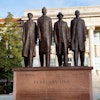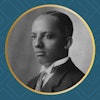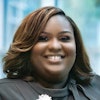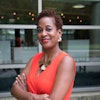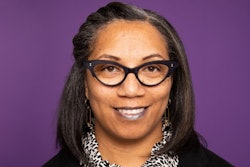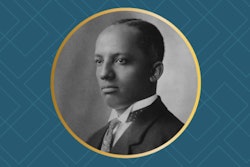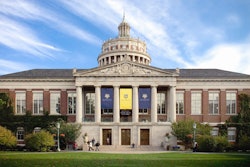In a move sparked largely by the tragic June 17 shooting deaths of worshippers at a prominent African-American church in Charleston, S.C., Yale University officials have launched a campus conversation on whether to rename a residential college named for 19th century alumnus John C. Calhoun, a former U.S. vice president and senator from South Carolina who was a fervent defender and leading ideologue of American slavery.
In a welcome speech delivered to freshman students on August 29, Yale president Peter Salovey said the Charleston massacre stirred up a long-simmering debate that had “returned to confront us again” over the propriety of retaining the Calhoun name for a Yale residential college where “one in twelve of you has been assigned.”
“What is more relevant to the concerns of the moment,” Salovey told the Yale students and their families, was that “Calhoun mounted the most powerful and influential defense of his day for slavery.”
“In fact, [Calhoun] believed that the highest forms of civilization depend on involuntary servitude. Not only that, but he also believed that the races he thought to be inferior, Black people in particular, ought to be subjected to it for the sake of their own best interests,” he said.
Salovey explained that, rather than Yale officials moving immediately to rename Calhoun College, students and other members of the Yale community “should consider the dangers, for instance, of judging past figures according to views and standards that evolved and developed after their own times.”
“We also must consider what it means to attempt to efface or distance ourselves from our own history. Some have sought to control our thinking about the past by selectively wiping away its traces, eliminating or softening its inconvenient or unflattering or dangerous elements,” he noted.
“The time has come for us to have a thoughtful and public discussion of what we ought to do [and] that everyone connected to Yale will have something to contribute to the discussion, whether faculty, staff, students, or alumni; whether historian or philosopher or psychologist; and whether one initially sees the issue as central or peripheral to the way we understand ourselves as a community,” Salovey urged.
